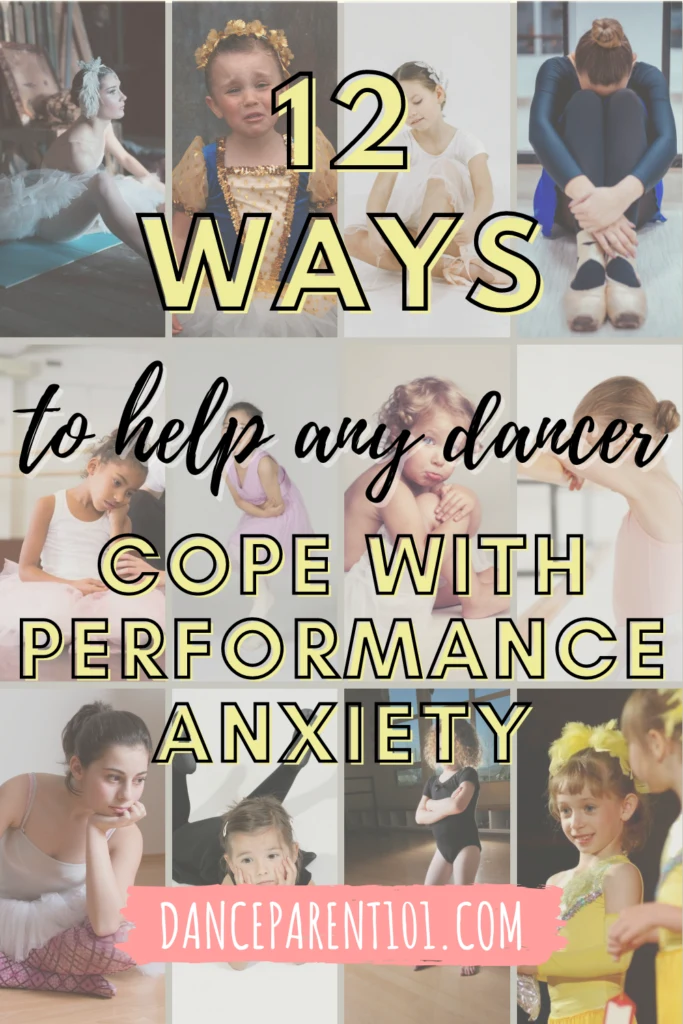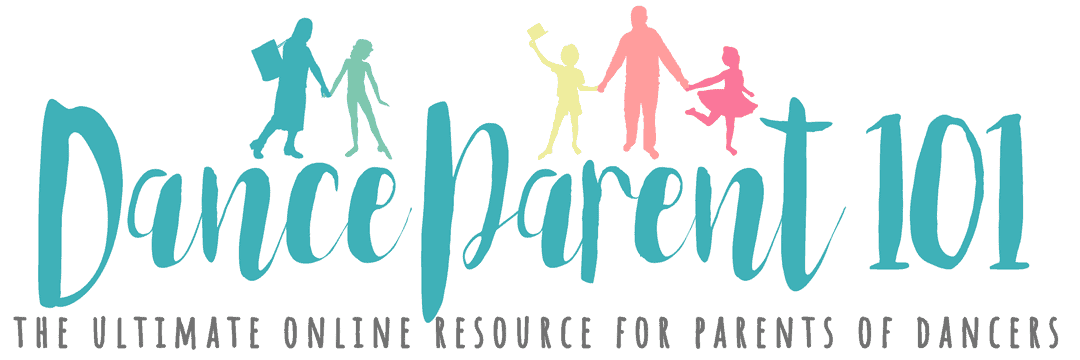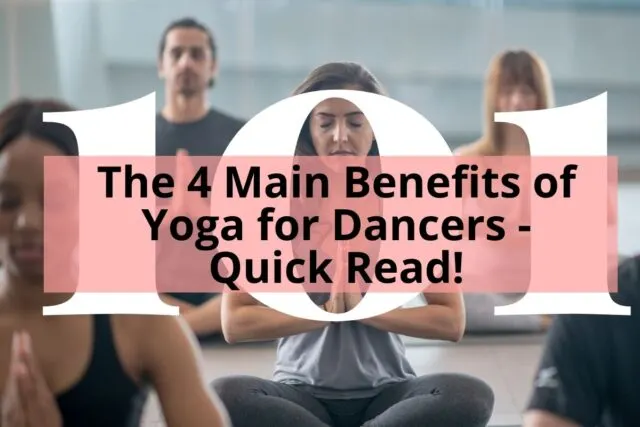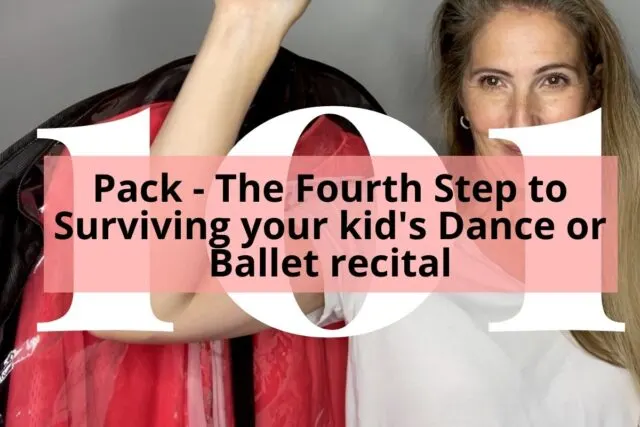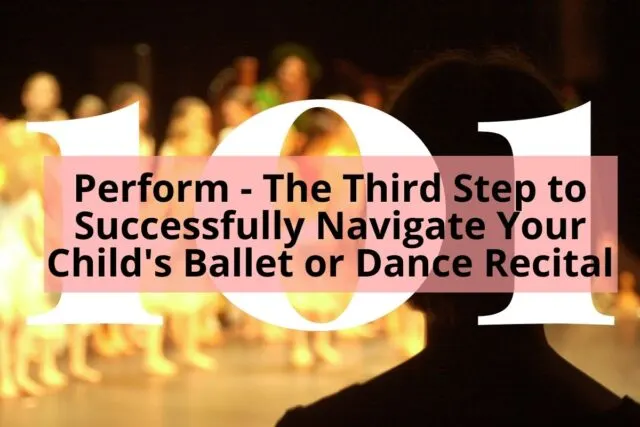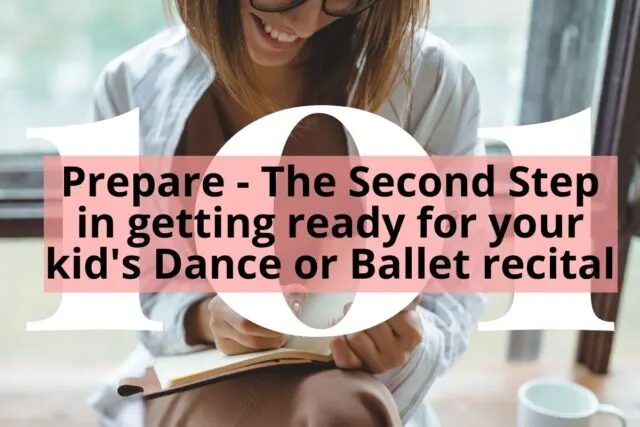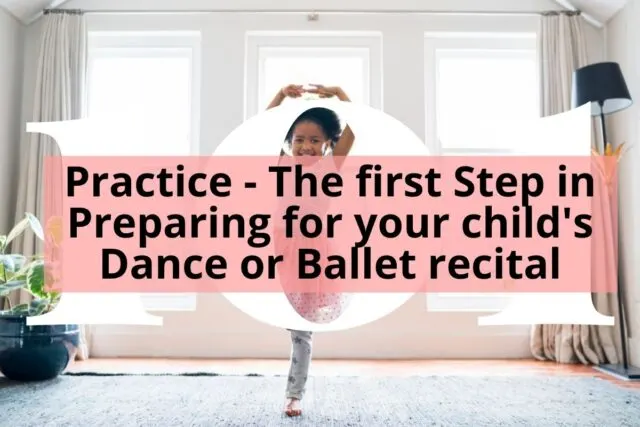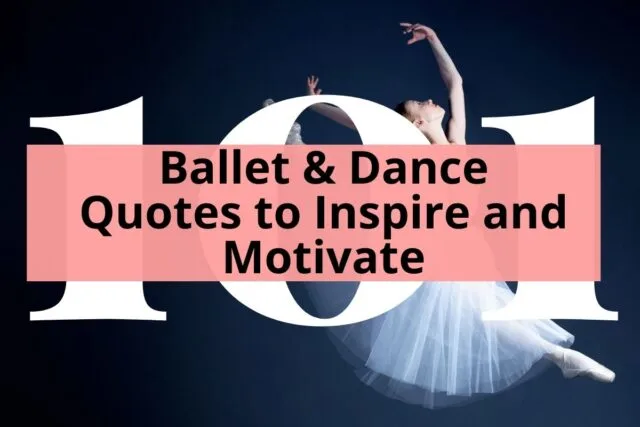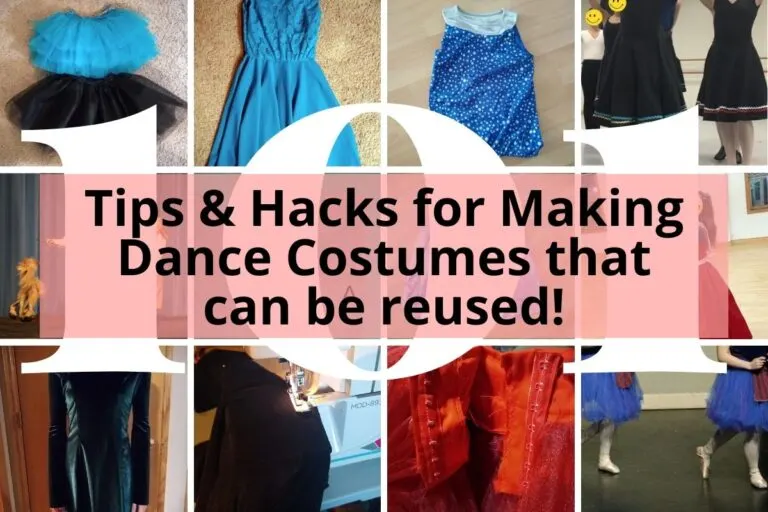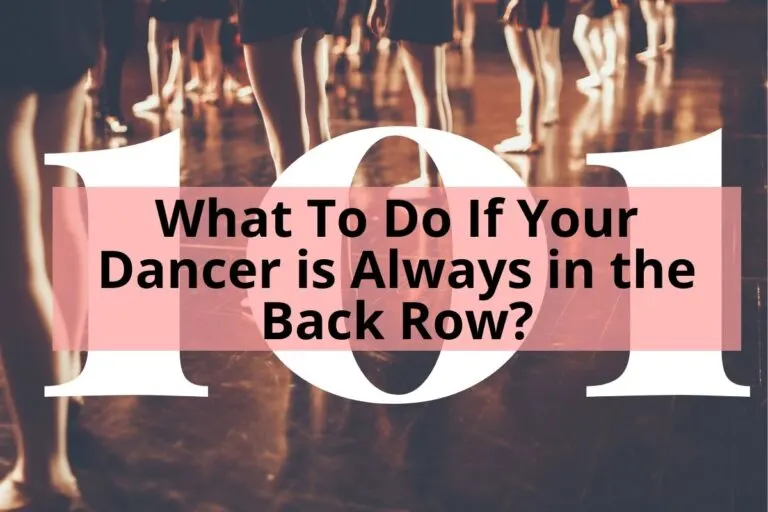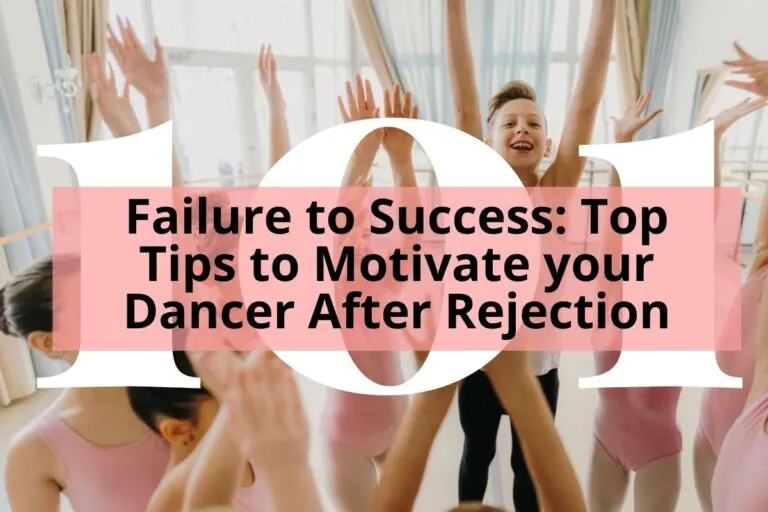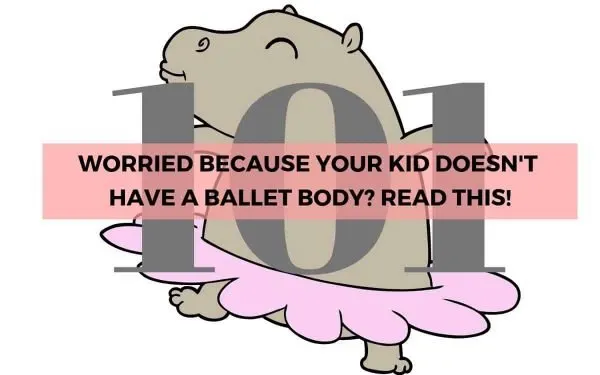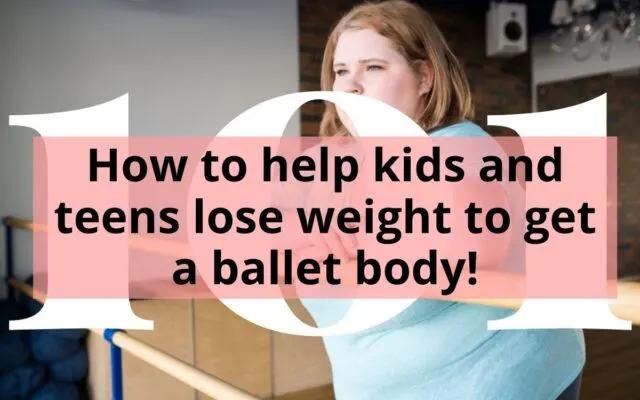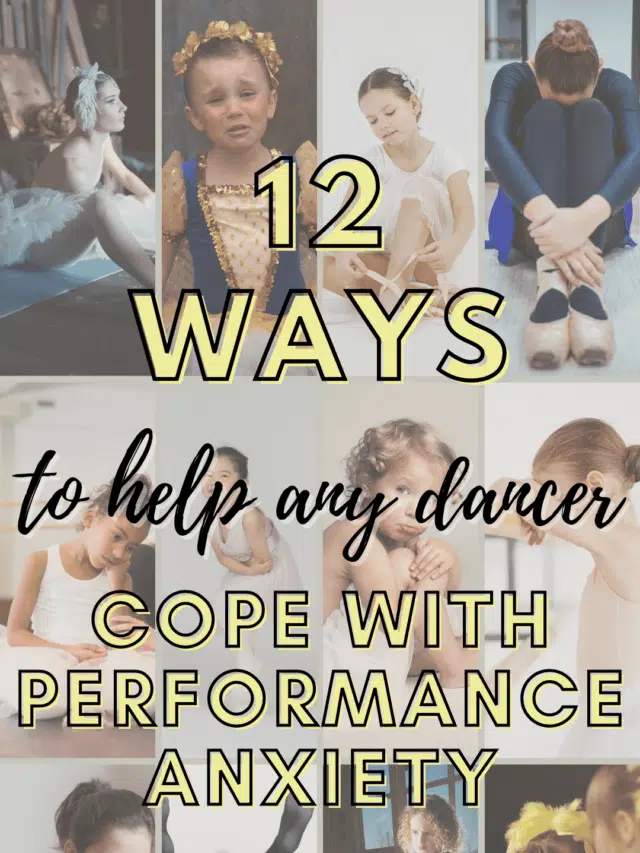Performing in front of an audience seems like it should come naturally to all dancers, but most dancers – even prima ballerinas – are not exempt from having pre-performance nerves and jitters!
New and young ballet, jazz or tap dancers for example, do not have much practice on how to handle themselves and their emotions, because dancing in front of an audience is a completely new experience, but it’s good as a parent to know that performance anxiety occurs in dancers at every age and skill level, including seasoned professionals!
Many different factors may be contributing to your dancer’s level of performance anxiety, and every different dancer needs to utilize different methods to help themselves perform to their best ability.

Below are 12 helpful tips you can incorporate both leading up to and on the day of your dancer’s big performance, with the most important goals being reducing those stressful moments, balancing their emotions, and encouraging your dancer to enjoy their performance day to its fullest.
The less stressed a dancer is on their performance day, the more joy they’re going to have onstage!
- 1. Visualizing your best performance
- 2. Practice until you can’t get it wrong!
- 3. Avoid sugary snacks and caffeine
- 4. Bring a few distractions
- 5. Learn calm breathing exercises
- 6. Pack an Emergency Kit
- 7. Develop a pre-performance routine
- 8. Have a sleep schedule
- 9. Set up the dressing room for success
- 10. Practice overcoming mistakes
- 11. Rediscover your reason to dance
- 12. Focus on the positives
- Other articles that might interest you…
- Share this article on Pinterest Now!
- Check Out our Google Web Story
1. Visualizing your best performance
Encourage your dancer to imagine themselves performing their routine to their best ability on stage, all the while smiling and having loads of fun! Visualization is an age-old trick that helps the dancer believe that everything will go seamlessly and helps set a positive tone for their big performance day.
Playing their music whilst visualizing can also increase their ability to use their mind’s eye, but remember picturing all of the things that could potentially go wrong is definitely not allowed!
2. Practice until you can’t get it wrong!
Practice, Practice, Practice! If your dancer is spending time dwelling on their stage fright, encourage them to utilize that time to practice their dances instead.
There’s a much lesser chance of onstage mess-ups if they know their choreography backward and forwards, and the root of some stress may be 100% from not knowing their dance well enough.
Have them practice in a variety of rooms, facing different directions, and for different friends and family members, even over a video call!
3. Avoid sugary snacks and caffeine
Especially important on a dance recital, exam or competition day is limiting your dancer’s sugar and caffeine intake. It may seem like a smart choice to give your dancer a boost of energy, but too much of either can cause unhealthy spikes in energy and, in turn, spikes in nerves!
Caffeine can also dehydrate a dancer, causing a rise in their heart rate. Instead, choose water and nutritious snacks that will give consistent energy for those long days in the theatre.
4. Bring a few distractions
Time spent waiting backstage can quickly turn into time spent overthinking!
Pack your dancer a few small puzzles, coloring books, or magazines, to help focus their mind on a completely unrelated task during their free time.
If necessary get your dancer playing quiet games with you or to themselves like 20 Questions or I-Spy right up until they step on stage as a distraction, whilst making sure they’re staying super quiet in the areas behind the stage!
5. Learn calm breathing exercises
Take a Few Deep Breaths – Everyone has experienced a tense moment where they feel their heart rate rising, their breaths shorten, and it could have potentially led to feeling lightheaded.
Teaching your dancer slow and calming breathing techniques can help combat the preshow panic. Instruct them to count slowly to 4 for each inhale, hold their breath for 4, and exhale for 4.
If they do this about 5-7 times in a row, they should feel their heart rate begin to drop and be overwhelmed with a new sense of calm.
This can be used anytime during a performance day, and some dancers swear by this being the last thing they do before stepping onstage.
6. Pack an Emergency Kit
Small costume rips, ribbons fallen off ballet shoes, smudged makeup, dirty jazz shoes, flyaway hairs: these all seem like small problems, but could easily become a meltdown moment for an already nervous dancer.
Pack a small kit of easy-solves; safety pins, band-aids, makeup wipes, bobby pins, small scissors; therefore, your dancer can quickly have a solution to the small mishaps during their important day. Even just knowing they are well-prepared for their show can ease their racing minds greatly.
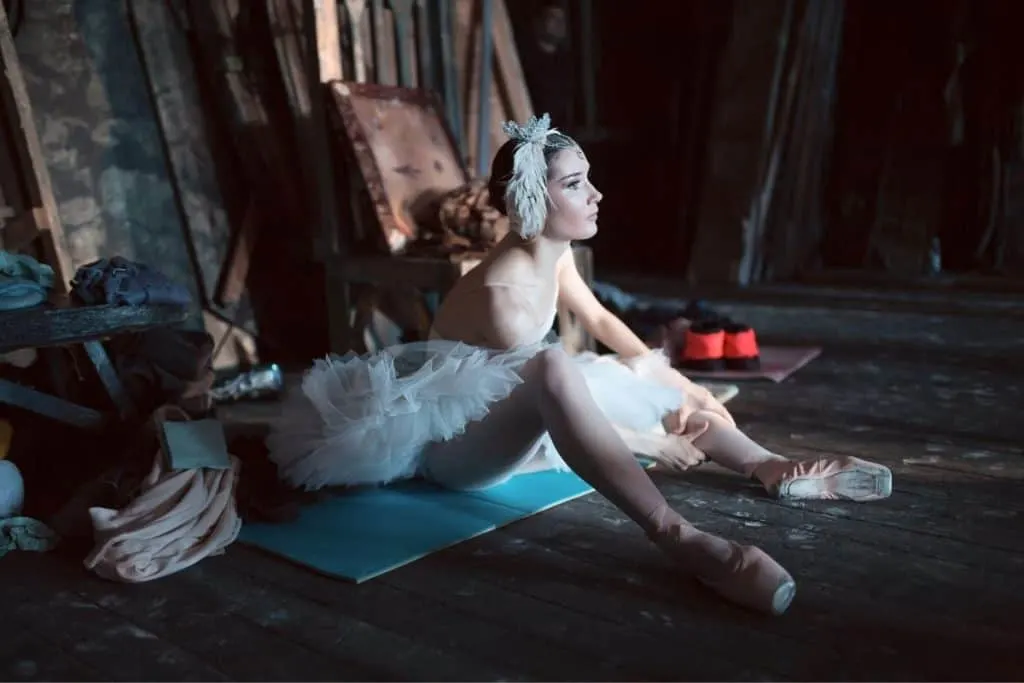
7. Develop a pre-performance routine
Some dancers perform their best when they’re super pumped beforehand, but it’s not always the best tactic for a dancer with performance anxiety.
Encourage anxious dancers to create a pre-performance routine or ritual and do whatever they need to do to keep a calm demeanor backstage. This might start from the time they sit and slowly focus on doing their make-up with AirPods in their ears listening to a meditation, visualization, or just their favorite tunes.
They might then go into a stretching and warm-up routine that feels familiar and comfortable to them or massage or foam roll their muscles before changing into their costume and finding a quiet spot where they can rehearse their dance a few times, listen to their music, or something else that motivates or calms them.
The focus of the routine is to remain calm backstage by doing things that feel familiar to them or are planned out so that they don’t have to stress about getting prepared. It’s also perfectly OK for a dancer to spend their backstage time alone if that’s the method that’s going to keep them relaxed and stress-free.
8. Have a sleep schedule
Get Plenty of Sleep – Expect a dancer who is nervous about an upcoming show to have trouble falling asleep during a recital week, especially the night before.
Do your very best to keep your dancer on a consistent sleep schedule for the entire week of the show.
Being well-rested can help even out their mood, keep a focused mindset, and have plenty of energy to dance to their fullest ability!
9. Set up the dressing room for success
Stay Organized – If you’ll be in the audience and unable to help your dancer prepare backstage for their routines, make sure all of their belongings are well-organized, and that they know exactly where everything is located in their various bags.
A mess of belongings, and the extremely stressful moment of thinking they may have forgotten an item can ruin their entire day.
Especially if a dancer has costume changes, have them practice those beforehand, so there’s no worry of changes not running smooth.
10. Practice overcoming mistakes
A common performance worry is forgetting all of the steps and the dreaded “going blank” onstage. A trick that will help is practicing picking up the choreography right after making a mistake, instead of giving up and starting over from the beginning of the routine.
This will create a habit of finding their way back in the choreography and teach a dancer to not panic when a simple mistake is made onstage.
Another tip is during practice to begin their music at random spots and see if they can work out where they are in the dance or learn to improvise until they do.
11. Rediscover your reason to dance
In the bustle of a busy recital weekend, dancers can lose touch on why they wanted to dance in the first place. They forget why they wanted so badly to begin ballet classes or why they wanted to make sounds and tap with their feet.
Small worries like performing every step perfectly correctly are not the most important aspect of a dance performance, but showing their amazing talent and passion for dance is!
Refocus your dancer by having a few conversations about why they love dancing, and the small stresses may begin to seem not as important anymore.
12. Focus on the positives
Ask your dancer about everything they loved about performing in front of an audience and tell them how incredibly proud you are of their accomplishments.
If a stumble happened onstage, don’t bother bringing it up to the dancer right then unless they mention it themselves, that is something for their teacher to work on with them.
Your encouragement will set your dancer up to approach the next performance with a confident attitude.
They will remember how much fun they had performing, and hopefully can’t wait until their next recital!
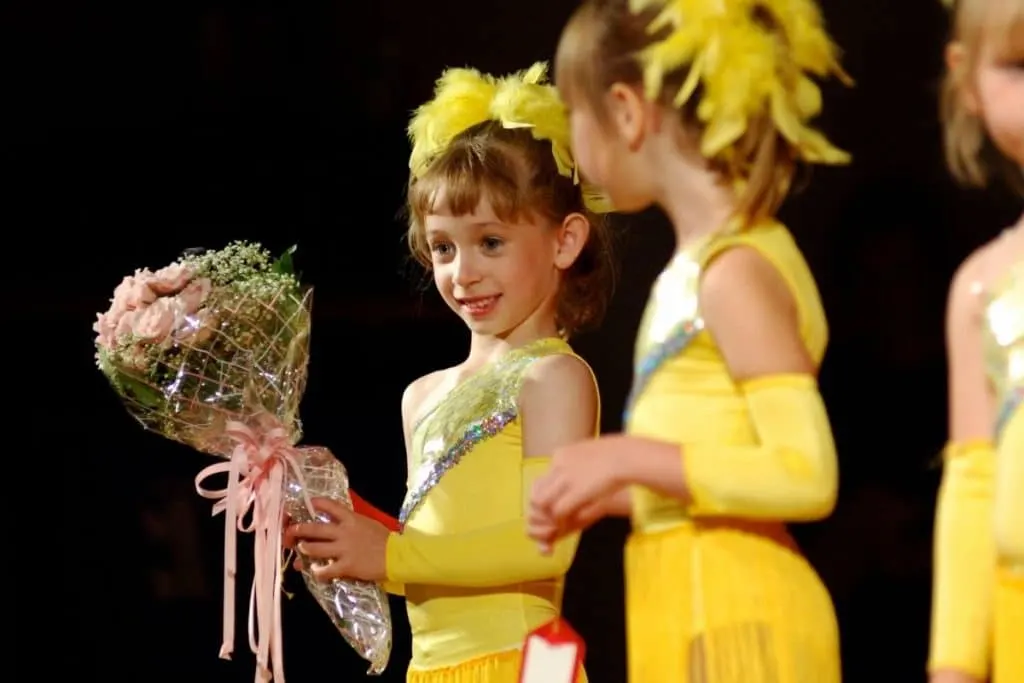
Performing on stage is one of the most exciting and memorable experiences a dancer will have and something that your child will be very proud of themselves for afterward.
Luckily for you and your dancer, performance anxiety can decrease each time a dancer is on stage, once they learn that many of their worries about performing in front of an audience are just that – worries as they continually experience their worst fears never coming true!
As dancers begin to learn how to cope with their nerves, they will automatically use some of these tips on their own.
Don’t give up if one method doesn’t seem to be working right away. It’s worth the trial and error because the less stress a dancer brings to their show, the more fun they’re going to have on stage. The most important thing is making sure a dancer enjoys their time performing because their love for dancing will surely shine through!
Other articles that might interest you…
Share this article on Pinterest Now!
